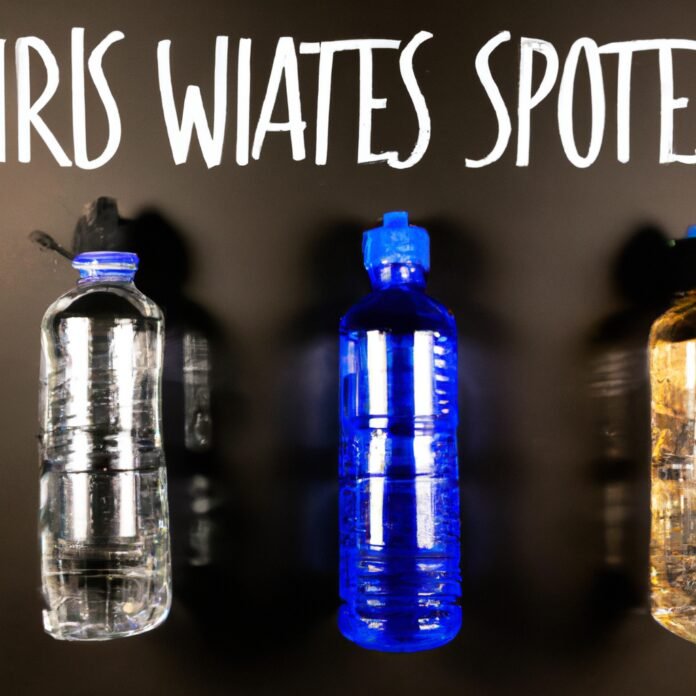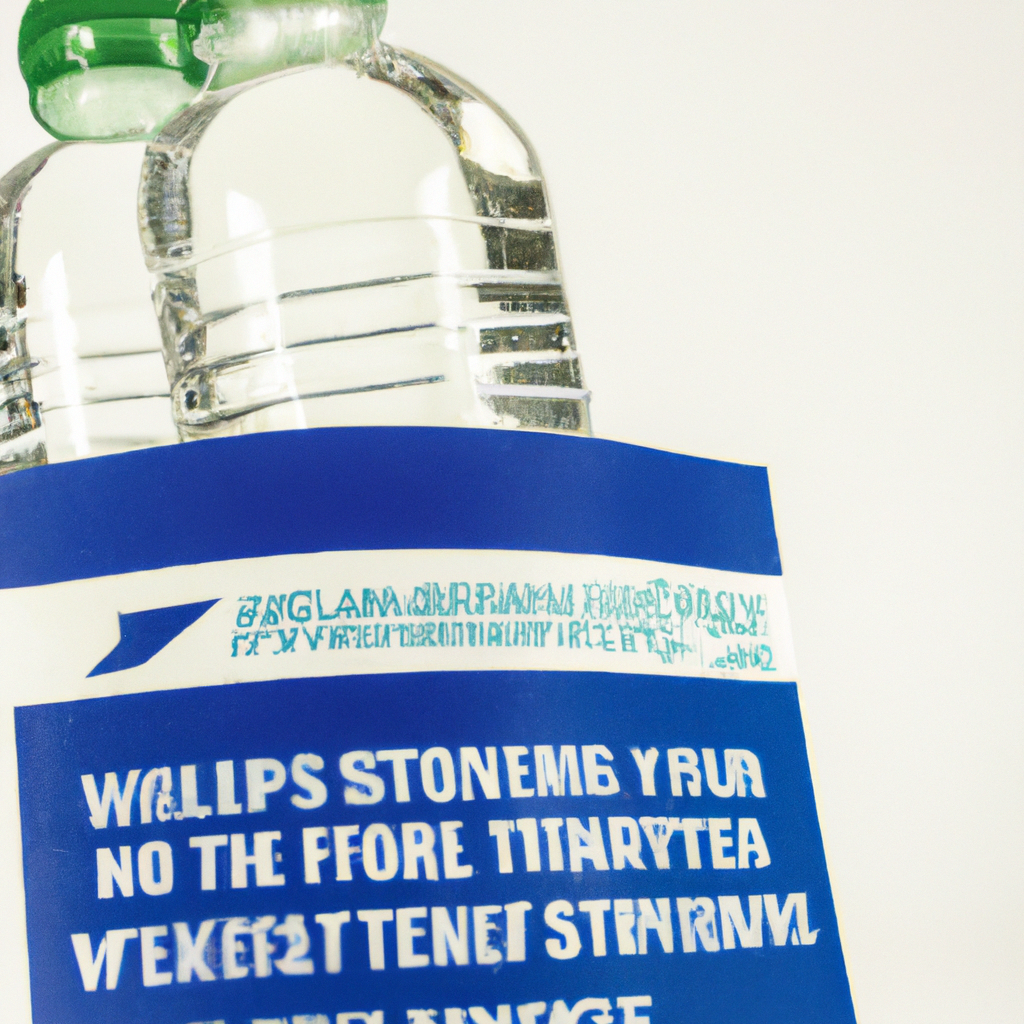Whether you’re a professional athlete or just like to hit the gym on your off days, the fuel you drink before and after a workout can make a big difference in the results you see. So what should you reach for? Water? Or sports drink? This article will explain the pros and cons of each option to help you decide what’s best for your workout.
1. Quenching Your Thirst: The Great Debate – Sports Drinks vs. Water
When it comes to staying hydrated, the choice between sports drinks and water is one of the biggest debates in the sporting world. Everyone has a strong opinion on their favourite drink and no two answers are usually the same. So, what’s the best choice for an athlete who wants to stay hydrated and competitive? Let’s take a closer look.
Sports Drinks: Sports drinks are perfectly formulated to give athletes hydration, energy and electrolytes to help replace those lost when you sweat. They are packed with carbohydrates and other nutrients to help provide lasting energy, and their many flavours mean they are more enjoyable than plain water.
Depending upon an athlete’s needs and personal preferences, there can be advantages to sports drinks. For instance, if you’re an athlete who engages in endurance sports such as long-distance running, sports drinks are great for postponing fatigue and helping to refuel your body as the exercise session progresses. On the other hand, for those who engage in short bursts of energy-draining activity, such as weightlifting or playing a sport like soccer, sports drinks may not be as beneficial.
Water: Water is the purest form of hydration. Plain old water is essential for keeping the body hydrated and is necessary for all bodily functions. It is an essential nutrient for athletes, providing them with energy and helping them to stay cool and hydrated. Unlike other drinks, it’s free from added calories, sugar, and preservatives.
There are several advantages of drinking water over sports drinks. One major benefit is that water is low calorie and zero fat, whereas sports drinks could contain added sugars and other calories. Also, while water helps to rehydrate an athlete, it does not contain any other enzymes or added vitamins to boost energy or prolong fatigue like sports drinks do.
When it comes to quenching your thirst, there are pros and cons to both sports drinks and water. Ultimately, it is up to individual athletes to decide which beverage is best suited to their nutritional and hydration needs. Here is a summarised list of pros and cons to help you decide:
- Sports Drinks Pros: Replenishes electrolytes, adds carbohydrates and flavours, aids in endurance activities
- Sports Drinks Cons: High in sugar, not recommended for short-burst or low-intense activities, added calories
- Water Pros: Pure hydration, no added calories, no sugar
- Water Cons: Not as enjoyable taste, no added carbohydrates or other elements to prolong energy or boost hydration
2. Hydration Showdown: Unraveling the Mystery of Performance Boosters
People have been obsessed with performance boosters since the dawn of athletics, but few things command attention like the mystery of hydration. It starts with the classic debate: what’s the best drink before and during intense activity? Everyone will have their own opinion, but what do the facts say? Let’s take a look at the two main hydration contenders: water and sports drinks.
The Pros and Cons of Water
- Pros: Water is considered the purest form of hydration out there and it requires no equipment or resources other than a reliable source. It also contains no calories or sugar, so it won’t interfere with weight control or nutrition plans.
- Cons: Without any electrolytes, water won’t help your body if sweat starts to take its toll. Drinking more water than absolutely necessary can also lead to hyponatremia, a condition where the scal levels in the body are too low.
The Pros and Cons of Sports Drinks
- Pros: Sports drinks are specifically designed to help athletes replace electrolytes and carbohydrates lost to vigorous activity. This can be especially helpful in endurance sports, where the body’s natural energy reserves can become depleted quickly.
- Cos: Depending on the brand, sports drinks can contain a lot of sugar and could mess with calorie control if taken in excess. Some athletes may also have to deal with bloating and cramping due to artificial sweeteners and preservatives.
What can take all the confusion out of the hydration debate? The best solution for rehydrating efficiently is one that draws the best of both worlds. For instance, water offers hydration without calories, so combining it with an electrolyte-based additive can provide thirst-quenching ability and electrolyte replacement in a single drink.
The bottom line is that the best way to combat dehydration depends entirely on the athlete’s individual needs. Exploring the nuances of water and sports drinks will help individuals find a hydration regimen that works for them.
3. Thirsty for Answers: Decoding the Ultimate Workout Companion – Sports Drinks or Water?
When it comes to workouts, hydration is a must. But deciding between sports drinks or water can be a challenge. Let’s explore the pros and cons of both options.
Sports Drinks
- Sports drinks contain electrolytes that can help replenish your body’s salt levels after a rigorous workout.
- They also contain carbohydrates in the form of sugar and, depending on the brand, vitamins and minerals.
Downsides of sports drinks include higher sugar content, which can lead to an elevated blood sugar level, as well as the potential for cavities and dehydration if consumed in excess. They also tend to be rather pricey and generally contain more chemical ingredients than other hydration options.
Water
- Water is generally inexpensive and very easy to come by.
- It’s a good way to recharge after a workout as it helps to replenish your body with vital fluids.
- Risk of dehydration is lower with water than with other fluids because the absence of sugar makes it easily absorbed by the body.
However, drinking too much water can also be problematic asymptomatic hyponatremia, or water intoxication, can occur. In addition, water does not contain calories, electrolytes, or other nutrients that may be needed after strenuous exercise.
Ultimately, the decision comes down to personal preference and activity level. If you are engaging in moderate to strenuous exercise, it’s wise to keep electrolytes replenished with sports drinks. However, if you are exercising at a low intensity, water is your best bet.
4. Liquid Battle: Choosing the Perfect Beverage to Enhance Your Exercise Regimen
Picking the ideal beverage to go along with a workout may seem like a daunting task, but it doesn’t have to be. After all, the goal is to quench your thirst and provide the optimum amount of nutrients, depending on the activity. Understanding the differences between different types of liquids can go a long way in helping you choose the right one for your needs.
Carbohydrates – Carbs are an important source of energy and should not be overlooked. Foods and drinks that contain carbohydrates are metabolized quickly, providing an immediate energy burst that can help carry you through your workout. If you plan a strenuous exercise regime, you can quench your thirst with juices, sports drinks, and even soft drinks containing carbohydrates.
Proteins – Protein is essential for building muscle. Although protein bars and shakes can be desirable, there are also several liquids that contain the necessary nutrients. Milk, soft drinks that are high in protein, and even protein-enriched smoothies can provide your body with the nutrients it needs while hydrating you at the same time.
Electrolytes – Electrolytes are important for maintaining fluid balance in your body as well as aiding in muscle contraction. If you engage in lengthy, strenuous workouts, electrolytes are a must. You can choose from sports drinks, coconut water, and other beverages packed with electrolytes. Replenishing your electrolytes after a workout is just as important as during it, so make sure to drink throughout your session.
Vitamins & Minerals – Vitamins and minerals are key for keeping your body functioning properly. Including Vitamins A, B, and C, as well as Calcium and Iron, in your workout routine can be beneficial for athletes. Juices, smoothies, and fortified drinks such as Vitamin Water can all provide your body with the essential vitamins and minerals it requires.
- Juices
- Soft Drinks Containing Carbohydrates
- Milk
- Protein Enriched Smoothies
- Sports Beverages
- Coconut Water
- Vitamin Water
- Smoothies
Whether it’s a game of pickup basketball or an intense aerobic session, choosing the right beverage for your workout can help you boost your energy levels and achieve your performance goals. When choosing, consider the activity you plan to do as well as the time of day. Don’t forget that basic water is always helpful for hydration and your overall health.
Regardless of what type of beverage you choose to drink during your workout, make sure to stay hydrated for optimal performance and overall health. The best drink to fuel your workout is dependent on the type of activity you are performing and the duration of your workout. The choice is yours!



